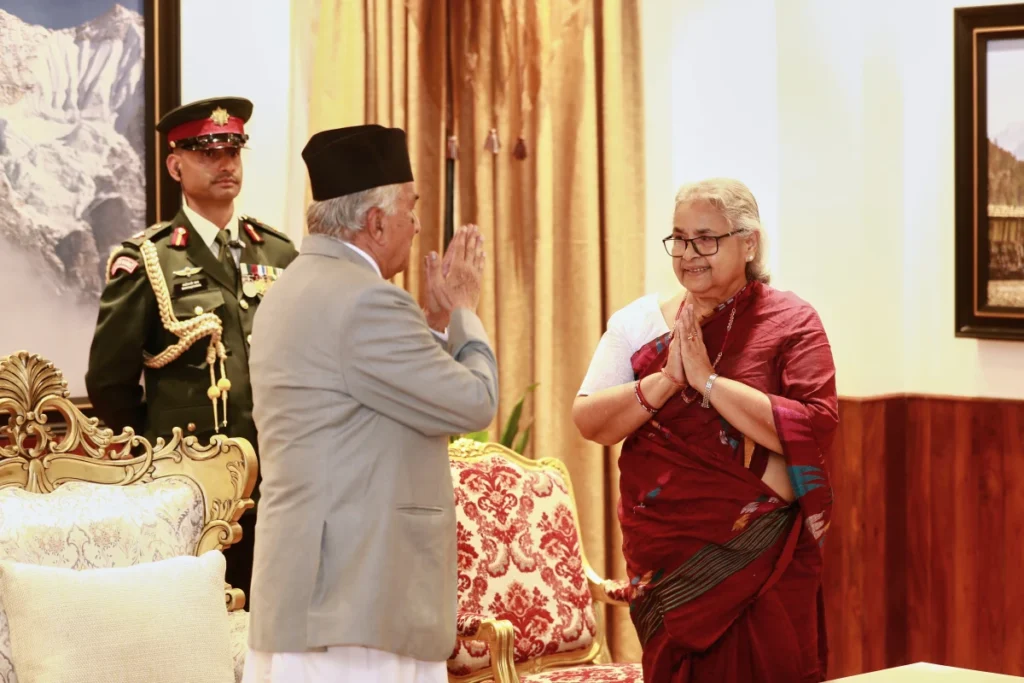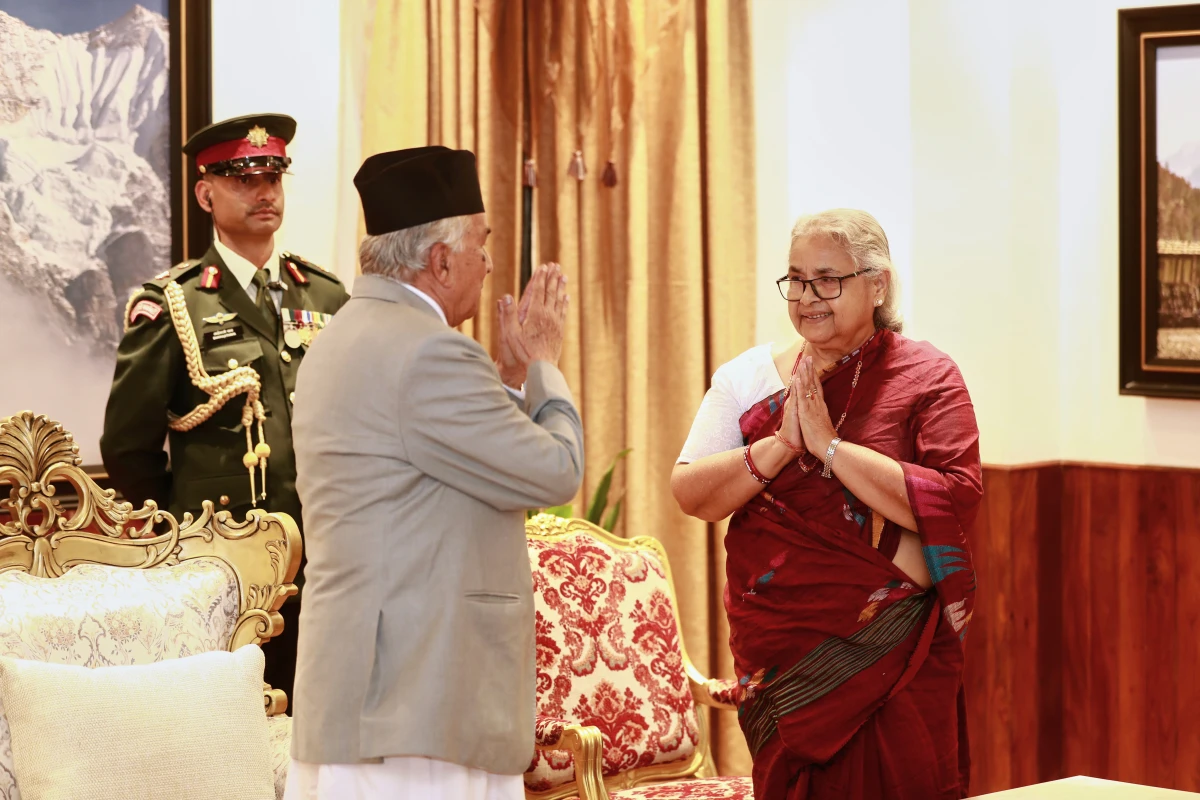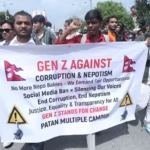Now Reading: Building a Stronger Nepal: Why Gen Z Must Lead Reform Efforts
-
01
Building a Stronger Nepal: Why Gen Z Must Lead Reform Efforts
Building a Stronger Nepal: Why Gen Z Must Lead Reform Efforts

Nepal’s youth are brave, creative, and eager for positive change — but energy alone is not enough. The next six months under the interim government present a critical window to focus on constitutional reforms that promote transparency, accountability, and long-term stability. From my perspective, having studied constitutional challenges in Pakistan, strong legal frameworks are essential to prevent repeated political failures. Key reforms include civic education, measures to limit dynastic politics, equality laws for all citizens including queer and trans communities, and strengthening democratic institutions. This is an important moment to support processes that ensure leaders are accountable, governance is fair, and Nepal’s democracy continues to thrive for generations to come.
I write this as someone who has been visiting Nepal since 2018 and has had the privilege of experiencing its culture, resilience, and people closely. My legal background as a lawyer from Pakistan, a country familiar with constitutional crises and political instability, allows me to understand the importance of strong governance and institutional safeguards.
My perspective is not to interfere in Nepal’s internal matters, but to stand with young Nepalis as they push for a future where the same mistakes are not repeated. I have seen firsthand that Nepal’s people — especially its youth — are brave, creative, and ready for change.
And for this very reason, I strongly believe Nepal’s political parties themselves would ultimately be willing to support such reforms. After all, in the long run, even parties need a stable and predictable political system to govern effectively and deliver on their promises as true representatives of the people. A strong constitutional framework benefits everyone — citizens, institutions, and political leaders alike.
Current Context
- Protests have surged; many blame Generation Z, but the unrest reflects frustration over broken promises, corruption, and repeated collapse of governments. (nepalfam.com)
- Interim governments (e.g., under Sushila Karki) are now taking steps to investigate corruption. This period — ideally the next six months — is critical to maximize reforms and prepare to fill a vacuum with an informed, educated, and loyal political leadership ready to lead responsibly in the future.
- The young are mobilized. Yet there is little clarity needed on what exactly must change in the rules of politics — the Constitution, electoral laws, and institutional checks — to prevent the same failures next time.
Why Constitutional Reform Must Be a Key Demand
- It anchors change: Once something is in the Constitution (or through constitutional amendment), it is harder but not impossible to undo.
- It changes incentives: Leaders will have to act under clearer rules, public expectations will rise, and institutional accountability improves.
- It builds legitimacy: If Gen Z and the broader citizenry demand these reforms, any future government that resists them loses moral legitimacy.
Key Reforms (Short & Easy to Understand)
Based on recent discussions (see Nepal’s Political Turmoil: Vandalism, Generational Frustrations, and the Way Forward) (nepalfam.com), these are some of the reforms young people should insist on:
| Reform | What It Means in Simple Terms |
|---|---|
| 1. Civic / Constitutional Education Mandatory | From Grade 8 onward, all schools/colleges teach how government works, what the Constitution says, rights & duties of citizens, separation of powers, etc. So youth aren’t easily misled. |
| 2. Ban on Dynastic Politics | No automatic transfer of political seats or undue advantage just because one is from a political family. All must go through fair, transparent selection or elections. |
| 3. Recognition of LGBTQ+ Rights & Equality Laws | Ensure laws protect LGBTQ+ and all queer and trans people from harassment and discrimination, allow same-sex marriage, inheritance, adoption, access to government services, insurance, and other legal rights. Local laws should be updated to remove barriers and prevent any form of legal or social marginalization. |
| 4. Strengthen Democratic Institutions / Training Programs | Leadership academies or institutions to train young people in governance, ethics, accountability, and public administration so future leaders are prepared. |
| 5. Political Inclusivity & Accountability | Give smaller parties a fair chance: equal funding, fair media access, protection from intimidation. Also, set up independent bodies to monitor whether political promises are kept, track corruption, and audit public spending. |
How To Use These Demands
Here’s how Gen Z can make these constitutional reforms not just ideas but non-negotiable demands for the next government:
- Public awareness and campaign
Use social media, videos, infographics, debates to explain what these reforms are, why they matter, and how they benefit ordinary people. - Concrete slogans & manifestos
When joining or forming youth-led movements, ensure your demands include constitutional reform. It should be in campaign manifestos. - Engage legal experts & civil society
Lawyers, NGOs, constitutional scholars — alongside Miss Karki herself, an experienced legal professional — should help draft model amendments. This ensures clarity, demonstrates seriousness, and reduces excuses for inaction by politicians. - Push for a “Reform Roadmap” in Pre‑Election Promises
The coming or new government must commit, before being elected, to a timeline and legal steps for these reforms. For example: “within first 100 days introduce constitutional amendment for civic education,” “within the first year ban dynastic transfer of seats,” etc. - Monitor / Accountability after election
Election is only the first step. Citizens can use records, independent watchdogs, public dialogue, and legal channels to ensure the new government fulfills its commitments and remains accountable.
Election is only the first step. Citizens can stay engaged through transparent monitoring, civic participation, and legal avenues to ensure the new government fulfills its promises. Independent watchdogs, informed public discourse, and accountability mechanisms can help keep governance on track.
From my perspective, this is a critical moment for Gen Z in Nepal. The focus should not only be on changing leadership, but on strengthening the rules so that corruption, nepotism, and ignorance do not take root again. A system built on dignity, fairness, and justice is essential.
Engaged citizens can prioritize constitutional reform before the next government settles in, supporting processes that ensure long-term stability, accountability, and inclusion. Strengthening the rules of governance helps prevent corruption, nepotism, and ignorance from gaining a foothold.
Nepal deserves more than reactive politics — it deserves a system built on dignity, fairness, and justice. Citizens can make constitutional reform the first benchmark for any incoming government, ensuring that future leadership cannot drift back into old patterns and that governance truly serves the people.












